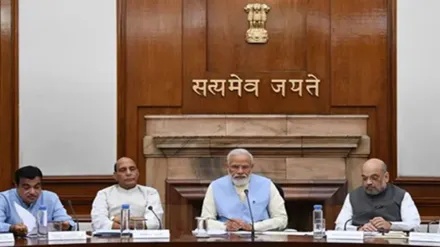
DA Hike and Effective Timeline
The Union Cabinet, chaired by Prime Minister Narendra Modi, has approved a 2% increase in the dearness allowance (DA) for central government employees and dearness relief (DR) for pensioners. This adjustment, effective from January 1, 2025, will benefit over 1 crore serving employees and pensioners. The decision, announced 15-20 days after the usual biannual schedule, ensures that April 2025 salaries will include the hike along with arrears for January-March 2025. This retroactive implementation aims to mitigate the impact of inflation on government personnel, though the delayed announcement has raised concerns about the adequacy of the measure.
Financial Impact on Employees and Pensioners
The 2% DA hike will raise the current 53% allowance to 55%, with a similar adjustment for DR for pensioners. For an employee earning a basic salary of Rs 18,000, this translates to an additional Rs 360 monthly, totaling Rs 4,320 annually. Pensioners with a basic pension of Rs 9,000 will receive Rs 180 extra monthly, equating to Rs 2,160 yearly. While these figures provide some relief against rising living costs, the increase is the lowest in seven years, falling short of the 3-4% adjustments seen since July 2018. Critics argue that the modest hike may not fully address the current inflationary pressures faced by government employees.
Context of the 8th Pay Commission and Future Reforms
This DA adjustment marks the first increase since the announcement of the 8th Pay Commission, which will take effect from January 1, 2026. The commission’s recommendations, expected to be finalized within a year, could lead to a significant salary revision, potentially merging DA with basic pay. The next scheduled DA hike for the July-December 2025 cycle will likely be the last under the 7th Pay Commission framework. Analysts suggest that the 8th Pay Commission’s proposals may redefine compensation structures, with potential implications for both current and future salary benchmarks.
Challenges and Broader Implications
The delayed announcement and the relatively low DA increase have sparked debates about the government’s approach to employee welfare. While the retroactive adjustment aims to provide immediate relief, the long-term sustainability of such measures remains questionable. With inflation rates persistently high, the 2% hike may not be sufficient to offset rising costs for many employees. The upcoming 8th Pay Commission recommendations are expected to address these gaps, though the timeline for implementation remains uncertain. The government’s ability to balance fiscal responsibility with employee satisfaction will be critical in shaping future compensation policies.
Looking Ahead: Key Developments to Watch
As the 8th Pay Commission prepares to submit its recommendations, central government employees will closely monitor its potential impact on salaries and pensions. The next DA adjustment, scheduled for October-November 2025, will likely reflect the commission’s findings. However, the merger of DA with basic pay could complicate future adjustments, requiring a reevaluation of existing compensation frameworks. Meanwhile, the delayed 2025 DA hike highlights the need for more transparent and timely policy decisions. The government’s ability to address inflationary pressures while maintaining fiscal discipline will remain a key focus for both employees and policymakers in the coming months.




